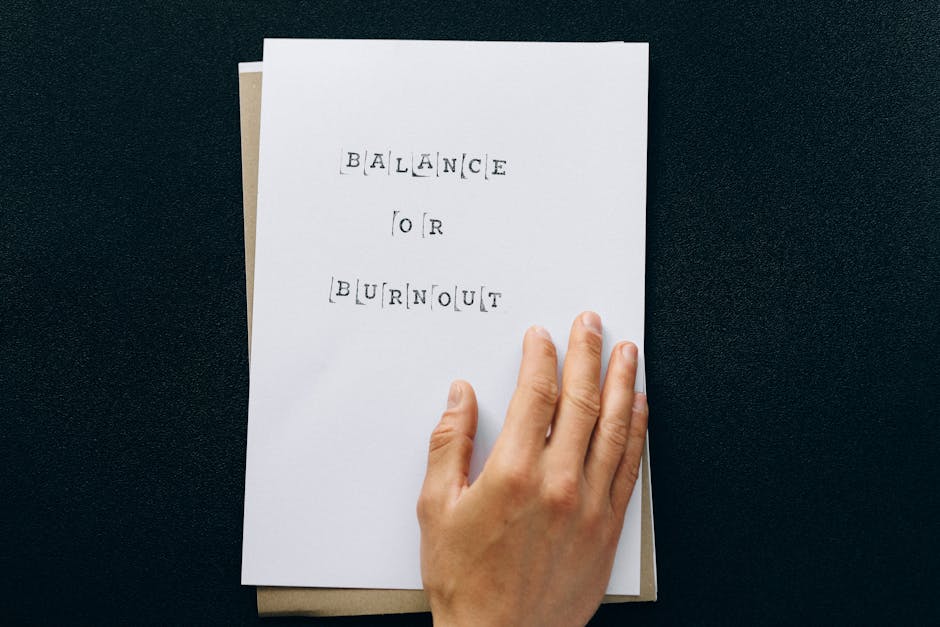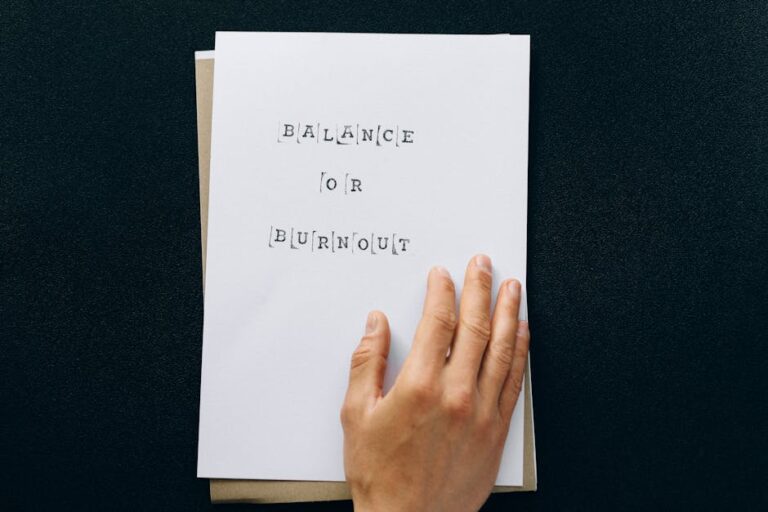Effective Tips for Managing Anxiety in Daily Life
In today’s fast-paced world, many individuals struggle with anxiety, impacting their daily lives and overall well-being. In this article, we will explore tips for managing anxiety in daily life that can empower you to regain control and cultivate a sense of peace. Read on for strategies and insights that can help you face the challenges of anxiety with confidence.
Understanding Anxiety: The First Step in Managing It
Before diving into tips for managing anxiety in daily life, it’s essential to understand what anxiety is. Anxiety is a normal response to stress, characterized by feelings of worry or fear about the future. Recognizing the symptoms—such as restlessness, rapid heart rate, and irritability—can help you address your anxiety more effectively.
Practical Tips for Managing Anxiety in Daily Life
There are several practical methods you can apply to manage anxiety as part of your everyday routine. Here are some tips for managing anxiety in daily life:
- Practice Mindfulness: Spend a few minutes each day focusing on your breath and being present in the moment. Mindfulness meditation can significantly reduce anxiety.
- Establish a Routine: Having a set daily schedule can provide structure and predictability, which can help alleviate feelings of anxiety.
- Engage in Physical Activity: Regular exercise is a powerful tool that can lift your mood and reduce anxiety levels. Aim for at least 30 minutes of moderate activity most days.
- Limit Caffeine and Sugar: Be mindful of your diet; excessive caffeine and sugar can exacerbate feelings of anxiety. Try opting for herbal teas and balanced meals.
- Connect with Others: Don’t underestimate the power of social support. Talking with friends, family, or professional counselors can provide relief from anxious feelings.

Incorporating Relaxation Techniques into Daily Routines
Another effective strategy related to tips for managing anxiety in daily life involves incorporating relaxation techniques into your day. Techniques such as deep breathing exercises, progressive muscle relaxation, or yoga can significantly reduce stress. Consider setting aside time each day for these practices to help cultivate a calmer mindset.
When to Seek Professional Help
While these tips for managing anxiety in daily life can be effective, it’s crucial to recognize when it may be time to seek professional assistance. If your anxiety is persistent, interferes with your daily activities, or leads to more severe symptoms, a qualified mental health professional can offer support and tailored treatment options. Don’t hesitate to reach out for help—it’s a vital step towards feeling better.
Incorporating these strategies into your daily life can help you manage anxiety more effectively. Remember, progress takes time, and what works for one person may not work for another. Explore various techniques and find what resonates with you on your journey toward anxiety relief.
Managing Anxiety: Practical Tips for Daily Life
Anxiety affects millions of people worldwide, often disrupting daily routines and diminishing quality of life. If you find yourself overwhelmed by anxious thoughts or feelings, you’re not alone. This article will provide you with effective strategies for managing anxiety, ensuring you can navigate your daily life with greater ease and confidence. Let’s dive into the practical tips for managing anxiety that can make a significant difference.
Understanding the Importance of Managing Anxiety
Before implementing any strategies, it’s crucial to understand why managing anxiety is essential. Chronic anxiety can lead to numerous health issues, including insomnia, digestive problems, and weakened immune function. Recognizing the signs of anxiety and addressing them promptly can lead to improved physical and mental health.

Daily Practices for Managing Anxiety
Incorporating some daily habits into your routine can significantly ease anxiety levels. Here are several practical tips specifically designed for managing anxiety:
- Mindfulness and Meditation: Regular mindfulness practices can help ground your thoughts. Consider setting aside 10 minutes daily for meditation.
- Physical Activity: Exercise has been shown to reduce anxiety symptoms. Aim for at least 30 minutes of moderate exercise most days.
- Healthy Nutrition: Eating a balanced diet rich in fruits, vegetables, and whole grains can help stabilize your mood.
- Sleep Hygiene: Prioritize quality sleep by maintaining a consistent sleep schedule and creating a calming bedtime routine.
- Journaling: Writing down your thoughts can help process emotions and identify anxiety triggers.
When to Seek Professional Help for Managing Anxiety
While self-help strategies can be effective, there may be times when professional intervention is necessary. If anxiety begins to interfere with your daily life, or if you find yourself experiencing panic attacks, it may be time to consult a mental health professional. They can offer tailored strategies and therapeutic techniques for managing anxiety effectively.

Building a Support System
Another crucial aspect of managing anxiety is maintaining strong relationships. Share your feelings with trusted friends or family members who can offer support. A solid support network can be invaluable in times of stress, helping you feel less isolated and more understood.
Additionally, consider joining support groups where you can connect with others experiencing similar feelings. Learning from others and sharing experiences can enhance your coping strategies and be a source of encouragement.
Final Thoughts on Managing Anxiety: Practical Tips for Daily Life
Managing anxiety is a journey that involves understanding your feelings and implementing effective strategies. By practicing mindfulness, engaging in regular physical activity, and ensuring you have a solid support system, you can take control of your anxiety and improve your daily life. Don’t hesitate to seek professional help if needed, as this can be an empowering step toward peace of mind. Start today by exploring these practical tips for managing anxiety and notice the difference they can make in your life.
Tips for Managing Anxiety: Techniques to Incorporate
Anxiety is a common experience for many individuals, often arising from various stressors in life. If you are seeking effective ways to reduce your anxiety, you’re in the right place. In this article, we will explore tips for managing anxiety: techniques to incorporate into your daily routine. These strategies are rooted in science and are designed to provide you with practical steps toward a more peaceful mind.
Understanding the Foundations of Anxiety Management
Before diving into the tips, it’s essential to understand what anxiety is and how it affects us. Anxiety can manifest in numerous ways, from everyday stress to more debilitating conditions such as generalized anxiety disorder (GAD). Understanding your anxiety is the first step toward managing it effectively.
Here are some fundamental aspects to consider when addressing anxiety:
- Identify your triggers: Recognizing what causes your anxiety is crucial.
- Self-awareness: Understanding how you respond to stress can help in choosing appropriate techniques.
- Seek professional help: In some cases, anxiety management may require therapy or medication.

Practical Techniques for Managing Anxiety
Now that we have established a foundation, let’s delve deeper into some practical tips for managing anxiety: techniques to incorporate into your daily life. The following methods can help you feel more grounded and in control:
- Mindfulness Meditation: Practicing mindfulness allows you to focus on the present moment and reduce racing thoughts.
- Breath Control: Deep breathing exercises can help calm your nervous system. Try the 4-7-8 technique: inhale for 4 seconds, hold for 7 seconds, and exhale for 8 seconds.
- Physical Activity: Engage in regular exercise, which is a proven way to reduce anxiety levels and boost your mood.
- Connect with Others: Talking about your feelings with friends or family can lighten the burden of anxiety. Consider joining support groups as well.
- Healthy Sleep Practices: Ensure you get adequate sleep, as lack of rest can exacerbate anxiety symptoms.
Incorporating Relaxation Techniques
In addition to the essential techniques mentioned above, incorporating relaxation practices into your daily routine is vital. These practices can help you unwind and reduce tension, providing a conducive environment for effective anxiety management.
Here are additional tips for managing anxiety: techniques to incorporate into your relaxation routine:
- Progressive Muscle Relaxation: This method involves tightening and then relaxing different muscle groups to release physical tension.
- Yoga and Stretching: These activities combine physical movement and mental focus, which can significantly reduce anxiety levels.
- Aromatherapy: Using essential oils like lavender can promote a sense of calm and relaxation.
By integrating these relaxation techniques alongside the more active strategies, you can create a comprehensive anxiety management strategy that works for you.
Now that you have an array of tips for managing anxiety: techniques to incorporate, it’s time to take action. Whether it’s starting with a simple breathing exercise, committing to regular physical activity, or seeking guidance from a mental health professional, taking the first step is crucial. Remember, managing anxiety is a journey, and these techniques can guide you toward a more serene path. Don’t hesitate to explore further resources and support systems to enhance your mental well-being.
Effective Strategies for Managing Anxiety in Everyday Situations
Managing anxiety can be challenging, especially in everyday situations that may seem trivial to others. However, understanding and implementing effective strategies for managing anxiety in everyday situations can profoundly improve a person’s quality of life. This article explores practical techniques and insights that can help anyone cope with anxiety more effectively. Let’s delve into these strategies and find what works best for you.
Understanding the Roots of Anxiety
One of the first steps in managing anxiety is understanding its roots. Anxiety can stem from various sources, including stress from work, personal relationships, or even past experiences. By pinpointing the triggers of your anxiety, you can focus on specific strategies tailored to your needs. Some common causes include:
- Work-related stress and deadlines
- Social situations and interactions
- Health concerns and fears
- Major life changes, such as moving or starting a new job
Recognizing what causes your anxiety is crucial. Once you are aware of the triggers, you can implement effective strategies for managing anxiety in everyday situations more effectively.

Practical Techniques for Managing Anxiety
There are several practical techniques you can employ to alleviate anxiety in daily life. Here, we highlight some of the most effective strategies for managing anxiety in everyday situations:
1. Mindfulness and Meditation
Practicing mindfulness and meditation can significantly reduce feelings of anxiety. By focusing on the present moment and clearing your mind of distracting thoughts, you create a sense of calm. Regular meditation helps train your brain to respond more positively to stressful situations.

2. Deep Breathing Exercises
Deep breathing is a straightforward yet effective tool for managing anxiety. When you feel anxiety creeping in, take a moment to practice deep breathing. Follow these steps:
- Inhale deeply through your nose for a count of four.
- Hold your breath for a count of four.
- Exhale slowly through your mouth for a count of six.
- Repeat this process until you feel a sense of calm.
Incorporating deep breathing into your routine is one of the simplest effective strategies for managing anxiety in everyday situations.
3. Physical Activity
Exercise is a powerful antidote to anxiety. Engaging in physical activity releases endorphins, which are natural mood lifters. Consider activities such as jogging, yoga, or even a brisk walk, which can be easily integrated into your daily routine. Aim for at least 30 minutes of moderate exercise most days of the week.
Building a Support System
Equally important in the journey of managing anxiety is building a solid support system. Surrounding yourself with understanding friends and family can provide comfort and stability during stressful times. Don’t hesitate to share your feelings and seek encouragement from those close to you. Seek professional help when needed; therapists can offer specialized guidance and coping strategies tailored to your situation.
Implementing effective strategies for managing anxiety in everyday situations requires persistence and consistency. Embracing these approaches will not only help you navigate daily challenges but also empower you to lead a fulfilling life despite anxiety.
If you’re seeking to take charge of your anxiety and improve your everyday experiences, start implementing these strategies today. Remember, it’s a gradual process, and small steps can lead to significant changes. Explore more resources and consider professional support to enhance your journey toward tranquility and well-being.
Tips for Managing Anxiety: Tools for a Calmer Life
In today’s fast-paced world, managing anxiety has become a vital aspect of maintaining mental well-being. Understanding the best tips for managing anxiety: tools for a calmer life can lead to improved emotional health and overall peace of mind. If you feel overwhelmed or anxious, this article will provide practical strategies to help you navigate these feelings effectively.
Understanding Anxiety and Its Triggers
Before diving into tips for managing anxiety: tools for a calmer life, it’s essential to recognize what anxiety is and what triggers it. Anxiety can manifest in various forms, such as generalized anxiety disorder, panic disorder, or social anxiety. Common triggers include stress from work, social situations, or traumatic events. Identifying these triggers can be a crucial first step in managing anxiety.
Practical Strategies for Managing Anxiety
Now that we have a fundamental understanding of anxiety, let’s explore practical tips for managing anxiety: tools for a calmer life. Implementing these strategies can promote emotional resilience and a sense of control:
- Mindfulness Meditation: Practicing mindfulness helps ground you in the present moment, reducing anxious thoughts about the past or future. Regular meditation can significantly lower anxiety levels.
- Regular Exercise: Physical activity releases endorphins, which help combat anxiety. Aim for at least 30 minutes of moderate exercise most days of the week.
- Deep Breathing Techniques: Engage in deep breathing exercises to help regulate your body’s stress response. Try inhaling deeply through your nose, holding for a few seconds, and exhaling slowly.
- Journaling: Writing down your thoughts and feelings can provide an outlet for stress. Journaling allows you to express emotions and reflect on your experiences, which can bring clarity.
- Limit Caffeine and Sugar: High caffeine and sugar intake can exacerbate feelings of anxiety. Try reducing or eliminating these from your diet.
These tools can help you create a personalized toolkit for managing anxiety. By incorporating them into your routine, you can build a routine that promotes calmness and better emotional health.
Utilizing Professional Support
While the tips for managing anxiety: tools for a calmer life discussed above are beneficial, don’t hesitate to seek professional help if needed. Therapists, counselors, and support groups provide valuable resources and tailored strategies to manage anxiety effectively. Therapy modalities such as Cognitive Behavioral Therapy (CBT) are particularly effective in addressing anxiety disorders.
Building Resilience Against Anxiety
Incorporating various tools and strategies can help build resilience against anxiety. Remember, it’s not about eliminating anxiety completely but learning to manage it constructively. Consistent practice of the tips shared can lead to healthier coping mechanisms and improved quality of life.
In summary, by understanding your triggers and utilizing effective tools, you can significantly enhance your ability to cope with anxiety. The tips for managing anxiety: tools for a calmer life presented here offer a pathway toward emotional steadiness. Take action today by exploring these strategies, and consider reaching out to a professional for further support in your journey toward a calmer life.

0 Comments